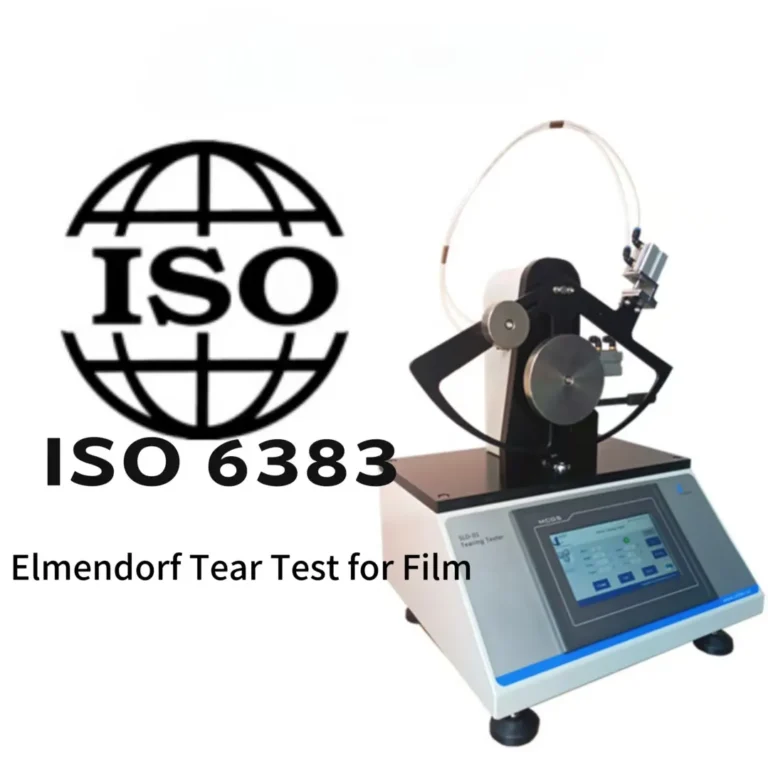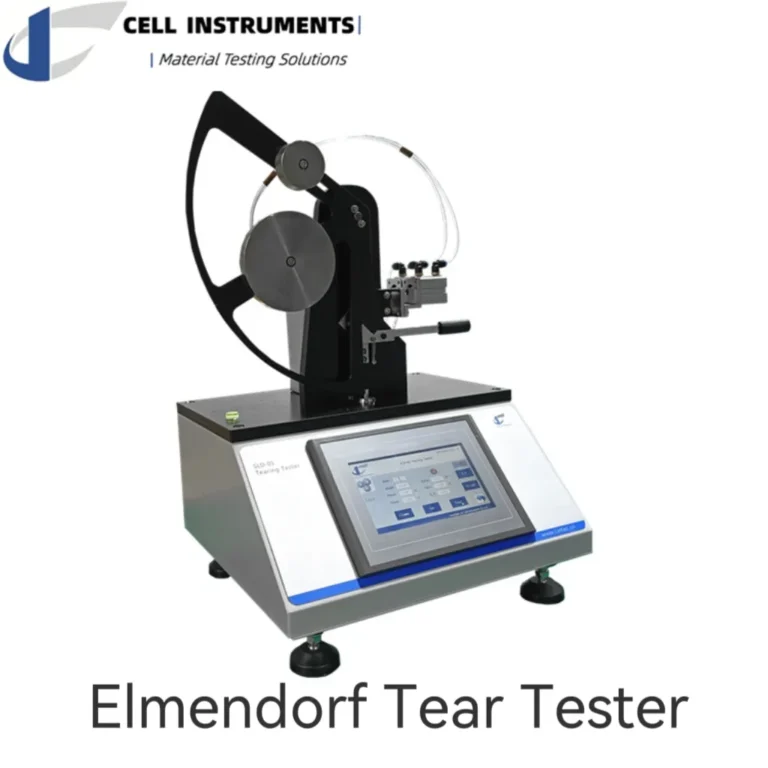
ISO 6383
Elmendorf Tear Test for Film
The ISO 6383 test standard is a widely accepted method used to measure the tear strength of plastic film, especially in flexible packaging, protective film, and industrial sheeting applications. It defines a consistent, quantifiable way to determine how much force is needed to propagate a tear in thin plastic film using a pendulum-type tear tester—commonly referred to as the Elmendorf method. Understanding this standard is essential for quality control personnel, material scientists, and packaging engineers who seek to ensure the durability and tear resistance of plastic materials.
Importance in Modern Materials Testing
Accurately testing the tearing performance of flexible packaging film helps manufacturers predict product reliability during transportation, handling, or end use. A film tear test instrument measures how a pre-cut film sample behaves when subjected to sudden force—replicating conditions like film rupture or bag tearing.
The ISO 6383 Part 2 method is especially relevant for plastic films such as polyethylene, polyvinyl chloride (PVC), and other polyolefins, where the mechanical integrity and toughness of the material must be maintained across a range of uses.
How the ISO 6383 Test Works
The ISO 6383 Elmendorf method applies to plastic films with limited rigidity and involves calculating the tear resistance based on energy loss of a pendulum as it tears through a sample. Here’s how the process works:
-
A specimen of fixed geometry is prepared with a 20 mm slit.
-
The pendulum-type tear tester is calibrated and reset.
-
The specimen is clamped securely between two jaws—one fixed, one on a free-swinging pendulum.
-
Upon release, the pendulum swings and tears through the sample.
-
The energy consumed is read via a calibrated scale and converted into force (Newtons), representing the tear strength of the film.
The test the tear strength of film procedure is typically performed in both machine and transverse directions to assess anisotropic properties in films.
Choosing the Right Equipment

Selecting a reliable tear tester for film is essential for consistent and accurate results. An ideal packaging film tear resistance tester should meet the following criteria:
-
Pendulum capacity options from 200 gf to 6400 gf
-
Consistent initial angle (27.5° ± 0.5°)
-
Jaw alignment conforming to ISO 6383 geometry
-
Capability for manual or pneumatic clamping
-
Calibration in compliance with ISO standards
The SLD-01 film tear tester from Cell Instruments is an excellent example. Built to support ISO 6383 and ASTM D1922/ASTM D1424, it allows users to conduct precise film tear tests under standard atmospheric conditions (as per ISO 291) and provides reliable repeatability, even with highly extensible films.
Applications and Material Suitability
The ISO 6383 method is ideal for thin, flexible films, including:
-
Food and beverage packaging films
-
Pharmaceutical blister and pouch materials
-
Daily chemical product wrapping films
-
Agricultural mulch films
-
Flexible medical device barrier films
However, the method is not suitable for more rigid plastics such as nylon or PET, as these materials may not yield consistent tear propagation under Elmendorf conditions.
Why ISO 6383 Matters to Quality Professionals
Understanding and applying ISO 6383 helps ensure materials meet customer expectations and regulatory requirements. It also supports material development, batch quality verification, and comparative analysis across production lots.
Using a standard like 6383 enables:
-
Consistent benchmarking of tear resistance
-
Improved film selection for packaging design
-
Failure analysis during packaging malfunction
-
Cross-material comparisons under controlled settings
Conclusion
The ISO 6383 Elmendorf tear test is a trusted, scientifically backed method for evaluating the tear resistance of plastic film. By using a high-quality pendulum type tear tester for plastic film like the SLD-01 from Cell Instruments, manufacturers and quality control labs can confidently assess material strength, improve design performance, and reduce packaging failures. Whether you’re in food packaging, pharmaceuticals, or flexible electronics, mastering the film tear test is critical to ensuring product reliability and customer satisfaction.
